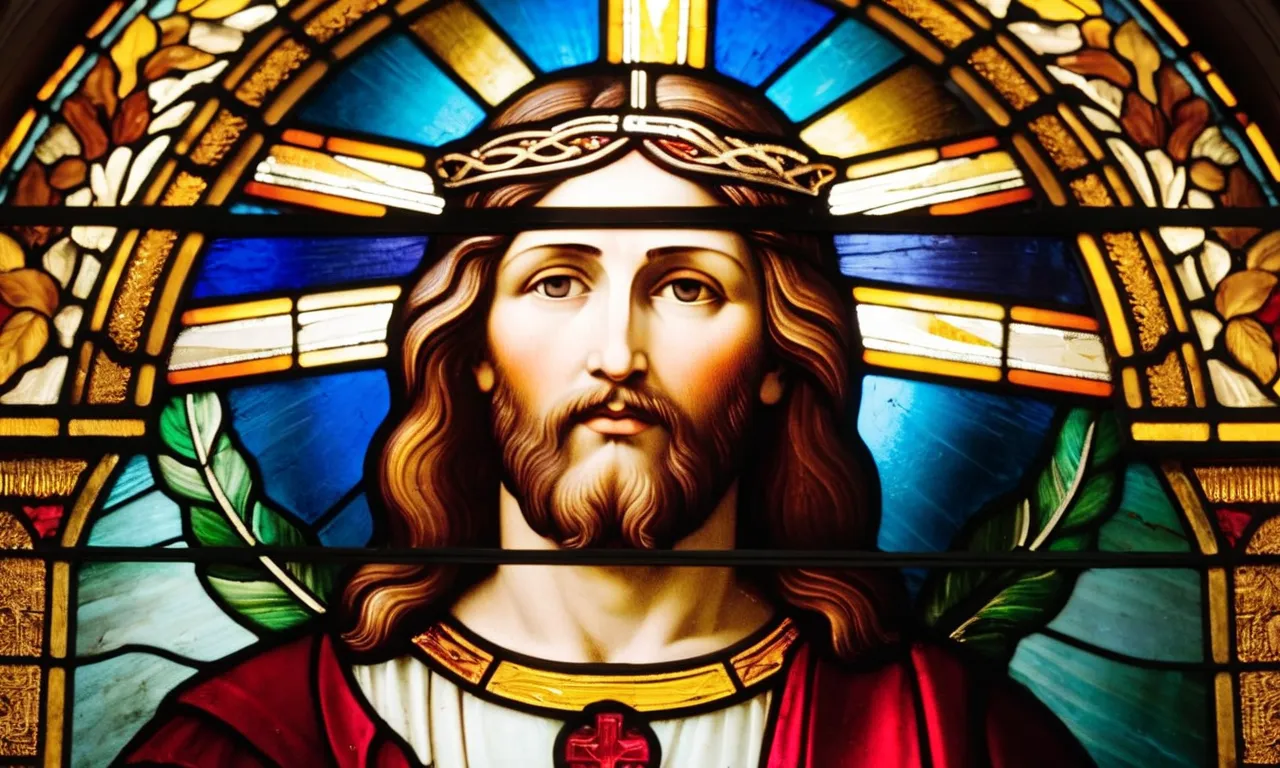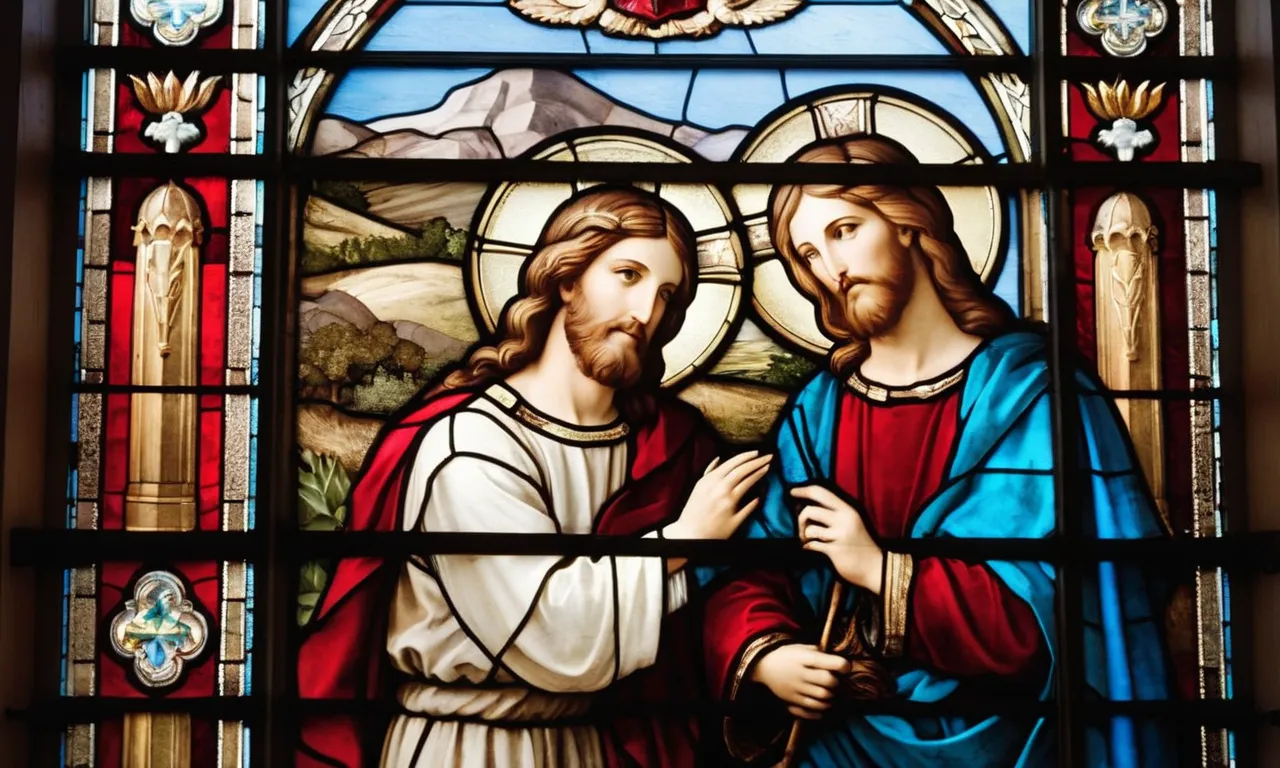The Family Connection Between Jesus And David
The Judeo-Christian faiths have deep ties between major biblical figures that span vast generations. A pivotal bond exists between David, the legendary king of the Israelites, and Jesus Christ himself.
If you’re short on time, here’s a quick answer to your question: Jesus and David were related through David’s lineage, specifically his son Nathan.
The Gospels of Matthew and Luke trace Jesus’ genealogy back to King David, establishing Jesus as a descendant of the revered ancient king.
In this comprehensive guide, we will analyze the family tree connecting Jesus to David in detail, examining the crucial ancestors between them. We will also highlight David’s seminal importance in biblical history and how his royal heritage reinforced Jesus’ legitimacy.
The Genealogy from David to Jesus
Key Ancestors That Bridge the Generations
The Gospel of Matthew provides a genealogy tracing Jesus’ lineage back to King David and beyond. Several key figures help bridge the generations from the great king to Joseph, Jesus’ earthly father.
Notable ancestors mentioned in Matthew’s account include Solomon, Rehoboam, Abijah, Asa, Jehoshaphat, Joram, Uzziah, Jotham, Ahaz, Hezekiah, Manasseh, Amos, Josiah, Jeconiah, Shealtiel, Zerubbabel, Abiud, Eliakim, Azor, Zadok, Achim, Eliud, Eleazar, Matthan, and Jacob.
These men connect Joseph’s branch to the royal bloodline of David, establishing Jesus’ rightful claim as an heir to the throne (Matthew 1:1-16).
Following the Lineage Through Joseph
The genealogy in Matthew follows the paternal line from Abraham to David, then through Solomon down to Joseph, legally the father of Jesus.
Though not a biological parent since Jesus was conceived by the Holy Spirit, Joseph was still a direct descendant of David and Solomon.
So by naming Joseph as Jesus’ father, Matthew shows the fulfillment of God’s promise that the Messiah would come from the Davidic dynasty.
Key details about the lineage include:
- There were 14 generations from Abraham to David
- There were 14 generations from David to the exile in Babylon
- There were 14 generations from the exile to the Christ
This symmetrical arrangement draws attention to the central figure of David, and now culminates in Jesus as the long-awaited Messianic king. The numbering also symbolizes that Jesus is the divinely appointed heir in David’s line.
Mary’s Connection to David
Although Mary is not directly named in Matthew’s genealogy, she also traced her roots back to David. The Gospel of Luke records her lineage through another of David’s royal sons, Nathan (Luke 3:23-38).
This means that by birthright from both his legal father and biological mother, Jesus had a rightful claim to the Davidic throne.
Mary’s cousin Elizabeth was also from the daughters of Aaron, making Jesus both Davidic royalty and Jewish priestly stock (Luke 1:5). His hereditary connections through Mary further establish him as the Messiah foretold in prophecy.
As promised descendants of David and Aaron, Jesus’ earthly parents allowed him to fulfill both offices of king and high priest.
David’s Central Role in Israelite History
Rise From Shepherd to King
David began his life as the youngest son of Jesse, a Bethlehemite shepherd. Though coming from humble beginnings, David was chosen and anointed by the prophet Samuel to become the future king of Israel while still a boy (1 Samuel 16:1-13).
David gained recognition among the Israelites first as a musician playing the lyre and singing psalms to soothe King Saul’s troubled spirit (1 Samuel 16:14-23).
His faith and skill with a slingshot then led him to the historic defeat of the Philistine giant Goliath, securing his reputation as a mighty warrior (1 Samuel 17).
After falling out of Saul’s favor despite loyal military service, David had to flee as an outlaw for several years before finally being crowned king upon Saul’s death (2 Samuel 1-5).
The Height of Ancient Israel Under David’s Rule
As king, David unified the tribes of Israel and Judah under his rule and defeated the surrounding nations that were enemies, like the Philistines, Moabites, Arameans, and Edomites (2 Samuel 8).
He conquered the fortress of Zion in Jerusalem and made it his capital, solidifying political and religious control in Israel (2 Samuel 5:6-12).
Solomon’s Temple would later be built there. David was also a skillful administrator, organizing the kingdom and the priesthood (1 Chronicles 23-26). Israel became a prominent regional power during his 40-year reign.
According to Bible scholars, the borders of David’s kingdom likely spread from Egypt to the Euphrates River at their peak—the largest territory held by Israel until modern times.
God’s ‘Man After His Own Heart’
Despite personal flaws and sins, David was uniquely close to God and exalted by biblical authors. After the death of Saul, David inquired frequently of the Lord before making decisions (2 Samuel 2:1, 5:19).
God gave David a special promise that his royal dynasty would endure forever, culminating in the Messiah (2 Samuel 7:12-16).
The book of Psalms contains over 70 psalms ascribed to David, exalting God and expressing the deepest forms of worship.
Jesus Christ as the Messianic King is often called “the Son of David” in fulfillment of this promise (Matthew 1:1, Luke 1:32, Romans 1:3).
In Acts 13:22, Paul summarizes David’s legacy this way: “After removing Saul, he made David their king. God testified concerning him: ‘I have found David son of Jesse, a man after my own heart; he will do everything I want him to do.
‘” Despite being an imperfect man, David unrelentingly sought the heart of God in everything. And through his descendants, David’s line brought salvation to all nations in Jesus Christ, the Savior of the world.

Jesus Fulfilling the Promise of David’s Heir
Old Testament Prophecies of a Coming Messiah
The Old Testament contains several prophecies about a coming Messiah who would be a descendant of King David.
In 2 Samuel 7, God makes a covenant with David, promising that his throne “will be established forever” and that one of his own descendants will rule after him (v. 16).
Isaiah 9:6-7 also refers to a child who will sit on the throne of David and establish an eternal kingdom. Other prophecies, like Jeremiah 23:5-6, make it clear that this future ruler in David’s line will be the Messiah.
Gospels Emphasize Jesus as the Son of David
The Gospels, particularly Matthew and Luke, emphasize Jesus’ lineage from David. Matthew begins his Gospel with a genealogy tracing Jesus’ ancestry back to Abraham and David (Matt. 1:1-17).
Luke’s genealogy similarly traces Jesus’ line back to David and even to Adam (Luke 3:23-38).
Throughout the Gospels, Jesus is repeatedly called “the Son of David” (Matt. 9:27; 15:22; 21:9). By emphasizing Jesus’ Davidic lineage, the Gospel writers portray Him as the fulfillment of the Old Testament prophecies about the Messiah coming from David’s line.
Importance of Establishing Royal Descent
Why was it so important to establish that Jesus descended from David? As the Messiah, Jesus had to fulfill the Old Testament prophecies about David’s heir who would sit on his throne eternally (Isa. 9:7). As the Son of David, Jesus had a rightful claim to the throne.
His Davidic pedigree proved He was the long-awaited Messiah who would rule and reign forever.
Though Jesus did not assume the earthly throne during His first coming, He will return again as King of Kings to establish His eternal Kingdom (Rev. 19:11-16).
Amazingly, after 2000 years, the genealogical record proving Jesus’ descent from David has been preserved just as God promised.
Conclusion
While over a millennium spans between the lives of David and Jesus, their bond is one of profound importance in biblical tradition. By tracing Jesus’ lineage across many generations to the ancient king, the Gospels bolstered Jesus’ legitimacy as a descendant of royal blood.
This heritage connects to ancient prophecies depicting the Messiah as reigning in the line of David, a rightful heir to the throne. The family ties between these two epochal figures shaped foundational concepts about the identity of Jesus Christ.








